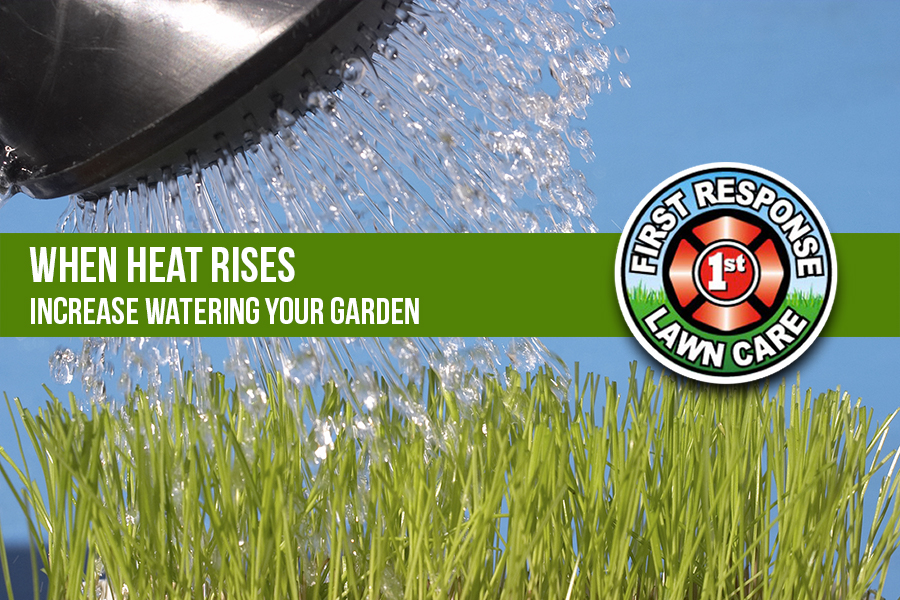When Heat Rises Increase Watering Your Garden
Now that the summer temps are reaching triple digits, we need to take extra care in watering the lawn, plants and vegetable garden. We happen to notice that our tomatoes weren’t producing much, and the pepper plants looked particularly wilted recently. Veggies need water to produce, so watering the garden correctly is crucial in the hot summer especially when we are not getting enough rain. Tomatoes are especially unforgiving if they dry out, then get wet and get dried out again. This creates problems like blossom end rot. And if you start noticing cracks in your fruit, this happens when water follows a drought, causing the fruit to expand suddenly and split the skin. The only way to avoid this is to keep the soil consistently moist. We’ve put together a list of tips for watering your garden that should help in this heat!
Water your vegetables two to three times a week or more.
During really hot summer weather, watering the garden deeply and often is critical. The water needs to penetrate the soil to encourage deep roots and get away from the hot soil surface. If you aren’t using a sprinkler or drip system, put a cup or can in the garden soil and don’t stop watering until it has collected at least an inch of water. If your veggies are in containers like pots, you need to water every day during the heat because containers dry out faster than the ground. To hand-water a small plot, or pots, use a nozzle turned to the “shower” setting for gentle, rain-like watering. If water just puddles on the surface of the soil at first, move on, and come back several times to be sure the water is actually soaking in to the soil. The soil needs to be thoroughly moist.
Watch your garden for an “indicator” plant.
The first indication of a wilting plant in the garden is your dehydration indicator. When you notice a plant with droopy leaves, you need to take action. The first is usually a plant with big leaves like squash, cucumber and melon because those lose lots of moisture fast. But in our veggie garden, we noticed the peppers and tomatoes wilted first. Of course, it’s better to water consistently so that this never happens. We all have busy lives and even the attentive gardeners get caught by wilting plants in the summer months. Note that in very hot, dry, and sunny weather, the big-leafed plants will wilt a bit mid-day no matter what, but they recover quickly in the evening. We keep a watering schedule programmed in our cell phone to remind us to check the more vulnerable plants each day at some point.
Avoid wetting the plant’s leaves.
If you use a sprinkler system, it is impossible not to wet the leaves when watering the garden, so in that case, water early in the morning so that the foliage will dry early and quickly to minimize disease risk. You can put the sprinkler on a timer so that it comes on just before daybreak, when the leaves may already be wet with dew. The gardening principle here is to avoid adding to the length of time that the leaves stay wet because many diseases need moisture to thrive.
Help keep water in the ground.
Use mulch! We recommend organic mulch like chopped up leaves, finely ground bark, wheat straw or pine needles, but any mulch is better than none. Spread mulch around and under plants. This creates a barrier between the moist soil and the blazing sun. You need a 2 to 3-inch layer of mulch in hot weather. This will act as a shade cloth to keep in moisture and cool plant roots. Without mulch, the intense sun bakes the soil requiring even more watering.
If you need help reviving your lawn in the heat of the summer, call your lawn care experts First Response Lawn Care at (214) 701-7622. We serve Rockwall and surrounding cities Royse City, Fate, Rowlett, Sachse, Wylie, Lavon, Forney, Heath, Garland, and Mesquite Texas. We are here to help!

